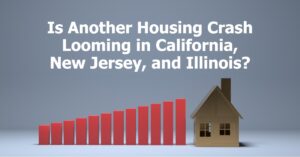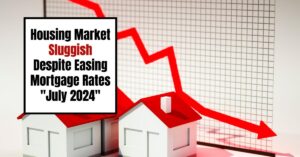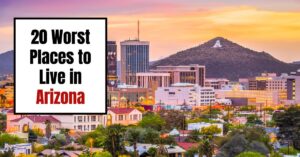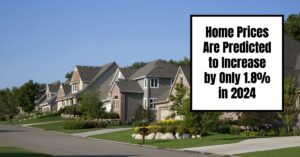The Florida housing market continues to make headlines as it remains one of the top choices for homebuyers seeking to relocate within the United States. In the third quarter of 2023, approximately 25.9% of homebuyers explored opportunities in different parts of the country, a figure that has remained relatively stable since August.
This number represents a slight increase from the previous year, showing a steady trend of people looking to move to new horizons. Data supporting these findings is based on extensive analysis of over two million home searches conducted through Redfin's website, spanning more than 100 U.S. metro areas from July 2023 through September 2023.
Florida's Top 5 Metro Hotspots for Relocation
Among the plethora of options in the Florida housing market, there are five standout metros that are particularly appealing to homebuyers looking to make the move. Let's explore these coveted destinations:
1. Orlando, FL
Orlando has emerged as one of the top choices for homebuyers, with a net inflow of 4,000 in the third quarter of 2023. Its top out-of-state origin is New York, NY, indicating that many New Yorkers are seeking a new life in the Sunshine State.
2. North Port-Sarasota, FL
North Port-Sarasota ranks high on the list of desirable destinations, with a net inflow of 3,700 in Q3 2023. Like Orlando, its top out-of-state origin is New York, NY, showing a clear preference among New Yorkers for this beautiful Florida region.
3. Tampa, FL
Tampa, with a net inflow of 3,400 in the third quarter of 2023, is another hot spot for those looking to make the move. Once again, New York, NY, stands out as the top out-of-state origin, indicating a strong connection between Tampa and the Empire State.
4. Cape Coral, FL
Cape Coral, with a net inflow of 3,300 in Q3 2023, is a flourishing destination in the Florida housing market. It attracts a significant number of newcomers from Chicago, IL, which is its top out-of-state origin.
5. Miami, FL
Miami, renowned for its vibrant culture and beautiful beaches, remains a top choice for homebuyers with a net inflow of 3,200 in the third quarter of 2023. Once again, New York, NY, takes the lead as the top out-of-state origin for those moving to Miami.
Florida Dominates the List of Preferred Destinations
What's intriguing about this trend is the dominance of Florida in the list of preferred destinations. Half of the top 10 most popular places to move are situated in the Sunshine State. This trend highlights the state's magnetism for those looking to relocate. Additionally, it's interesting to note that eight out of these ten popular destinations are located on the East Coast, showing the increasing allure of coastal living.
Despite the presence of increasing climate risks, the allure of Florida's housing market remains strong. Many of the places that homebuyers are moving to are more affordable than their places of origin. This affordability factor is a key driver behind this relocation phenomenon. People are drawn to the idea of a more financially sustainable life without compromising on the quality of living.
A notable case that exemplifies this trend is Austin, Texas. In early 2021, Austin was the top move-to metro in the nation. However, it has seen a decline in popularity in recent years. Several factors contributed to this decline:
By mid-2022, Austin's home prices had surged by more than 75% compared to pre-pandemic levels. This surge in prices made the city less attractive compared to other regions.
The increase in home prices also resulted in a substantial rise in monthly mortgage payments. A typical monthly payment for Austin's median-priced home reached $3,890, almost double the $2,136 monthly payment in 2019.
As some remote workers transitioned back to in-person work, they opted to return to their hometowns or seek employment in major job hubs. The changing dynamics of the labor market played a role in this shift.
The case of Austin offers valuable insights into the evolving preferences of homebuyers. While Austin witnessed a decline, Florida's housing market is thriving, especially in certain metro areas.
Thus, Florida's housing market continues to shine in 2023, with these five metros leading the way. The affordability, vibrant communities, and diverse opportunities in the state make it a top choice for those looking for a fresh start. As remote work and changing priorities reshape where people want to live, Florida remains a bright spot on the map of desirable destinations.











